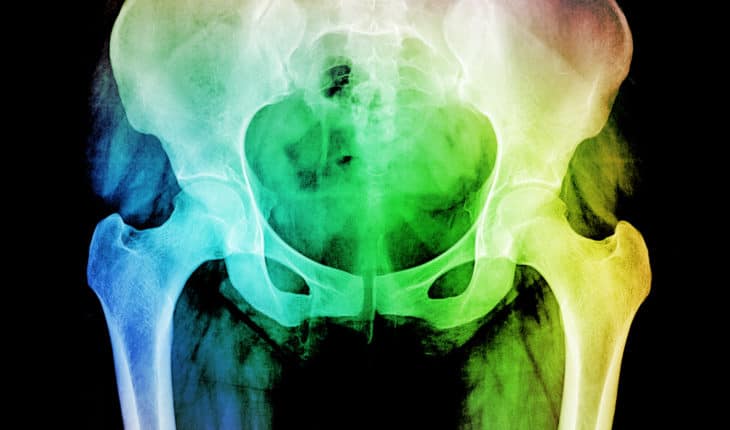Patients suffering with debilitating symptoms due to gaps in radiotherapy follow up care: A new report has found cervical cancer patients treated with radiotherapy are not getting care to deal with long term side effects such as pain, incontinence and urgent bowel movements. A lack of recognition among healthcare professionals, and scarce resources to diagnose and treat Pelvic Radiation Disease (PRD) mean some are left unable to leave the house, forced to give up their jobs and living needlessly in pain.
The charity’s report “I want my life back” follows insight from its support services, interviews with patients and healthcare professionals, and Freedom of Information requests issued to hospitals across the UK.
Jo’s Cervical Cancer Trust is calling for standardised guidance to be published to support the diagnosis and management of PRD, alongside greater recognition of side effects following radiation in the pelvis among health professionals.
Radiotherapy is a highly effective treatment. As with all procedures, short-term side effects are common, however PRD covers a wide range of symptoms which start or continue at least three months after the end of pelvic radiotherapy. Without treatment these can be lifelong and can leave patients with permanent pain, bowel and bladder difficulties, bone fractures and nerve damage.
The charity is concerned that patients face a postcode lottery over whether they can access the diagnostic tests and treatments they need. A lack of specialist services and clinicians who are aware of the highly incapacitating nature of PRD mean many of the patients the charity spoke to reported resigning themselves to living with highly debilitating conditions, feeling dismissed when presenting with symptoms or being told nothing can be done.
Rhea, Devon, had cervical cancer when she was 34 in 2016: “I lived with PRD symptoms for a couple years, and I would mention them to my gynae-oncologist every time I saw them. These included nausea, bile acid diarrhoea, painful bladder spasms, pain from my back and hips into my legs which meant at times doing things I enjoyed was difficult and I would have falls. They would suggest things like cutting out caffeine or basic medications and I tried physio. None of this worked.
I found my late effects consultant on social media though PRDA UK. My oncology team didn’t know it existed. I had to self-refer which was a nightmare trying to sort out the funding; as I was also out of the area. It was incredible and validating to finally be seen and heard by someone who joined the dots from my radiotherapy to my symptoms and helped me get the specialist treatments and support I desperately needed. There are many people suffering with PRD who fall through the gaps and will not get the care they need after cancer treatment – if I could have one wish it would be that every cancer service had a late effects clinic.”
Lack of awareness of the condition means the symptoms are often treated in isolation instead of identifying the cause. As a result many patients get incorrect and inefficient treatments, relying on trial and error
As the number surviving cancer grows, so do the number affected by PRD. The Pelvic Radiation Disease Association estimates that at least 100,000 people in the UK experience ongoing problems following radiotherapy to the pelvic region. 40% of cervical cancer patients receive radiotherapy as part of their treatment. Every year in the UK, over 3,200 women are diagnosed with cervical cancer with 49,000 living with or beyond diagnosis.
Rebecca Shoosmith, Head of Information and Support Services, Jo’s Cervical Cancer Trust:
“It should not be the case that treating cancer is a box-ticking exercise. There is an urgent need for far greater recognition of the longer term side effects caused by radiation in the pelvis, along with consistent pathways to enable those affected to get much-needed treatment. Covid could further remove what precious little support is out there at the moment and for the thousands having radiotherapy ever year, that is simply not acceptable, as the physical, financial and psychological impact of PRD is far too great.”
With access to services already scarce, the charity is concerned that the impact of the coronavirus (Covid-19) pandemic will exacerbate the problem as result of the huge amount of pressure the NHS has been put under and that resources will be diverted elsewhere, with many clinics already having to cancel appointments.
John Webber, Chairman, Pelvic Radiation Disease Association: “Thousands of people live restricted lives because of Pelvic Radiation Disease. More clinics and services would enable them to return to an active and productive life.”
Full recommendations
1. All patients to leave radiotherapy with a Treatment Summary, that is also issued to their GP, with details of their treatment, potential side effects, and where to access appropriate referrals and support if they experience them
2. Centres of excellence for PRD to be established to support diagnosis and referral for patients, in addition to building the specialism through developing training across the workforce, trialling new treatments, contributing to the knowledge base, and providing a central resource hub for clinicians
3. NICE guidelines on the diagnosis and management of the late effects of pelvic radiotherapy, or on the management of cervical cancer, to be developed, including follow up pathways for identification and treatment of symptoms following radiotherapy
4. A tariff for the late effects of cancer treatment to be developed within the NHS to fund much needed clinics and services
5. New research to be conducted to assess current understanding of PRD among professionals across primary and secondary care, in addition to long range studies looking at the experience of patients
6. Professional bodies and societies including Royal College of Physicians, Society of Gastroenterology, and Royal College of General Practitioners to identify opportunities where teaching about toxicity following radiotherapy can be included in medical training, especially for primary practice and gastroenterology where patients may present with complex symptoms.
- Combination of drugs could prevent thousands of heart attacks - 21st April 2025
- UQ Study Links Poor Teen Diets to Heavy Social Media Use - 21st April 2025
- Gut microbiome could delay onset of type 1 diabetes - 3rd April 2025






